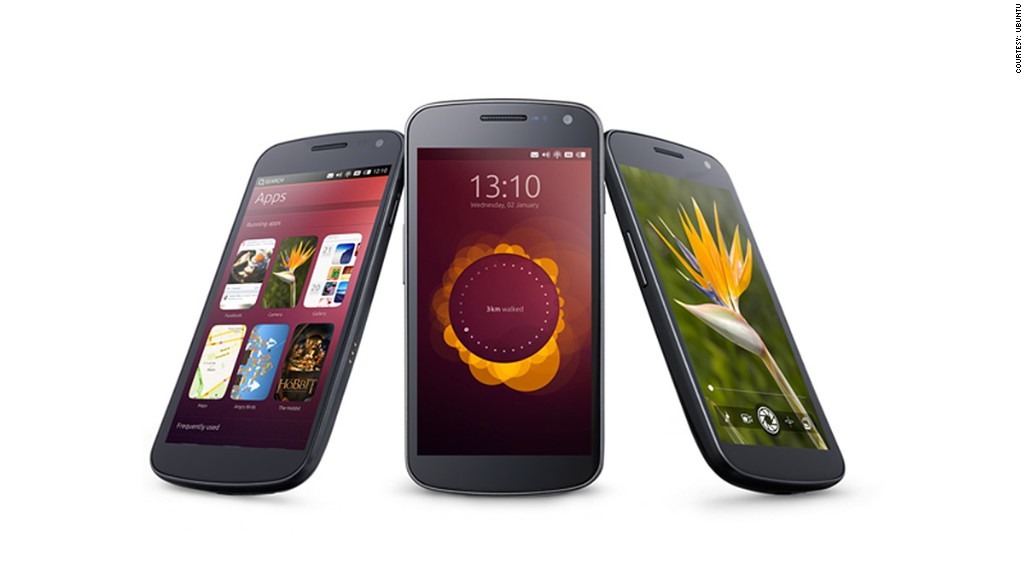
Ubuntu has long been a favorite Linux desktop operating system for open-source fanatics and those who like to tinker with their technology. Now it's stepping out into a new frontier: mobile.
Ubuntu developer Canonical unveiled a new interface on Monday reimagined for touch devices, with a design that borrows cues from Android and Windows 8. The hard sell here isn't simply that Ubuntu now works on mobile devices. Canonical hopes that future devices (read: arriving sometime in 2014) will not only run the new mobile OS, but will also boot the desktop variant of Ubuntu when docked to a keyboard, mouse and monitor.
That would let you literally use your phone to power your PC.
This concept isn't entirely new, as Canonical revealed similar plans last year to attach its desktop software to devices running Android. Before that, Motorola tried to turn Android phones into laptops with its Atrix line of phones and docks. And let's not forget the hybrid operating system experiment that is Windows 8.
But no one -- not even Microsoft (MSFT) -- has attempted to serve up its own phone OS and desktop OS in a single package. Despite its desktop-like features, Android considers itself a phone and tablet system, while Microsoft still has Windows Phone 8 operating autonomously from the tablet and desktop-centric Windows 8.
Is Ubuntu's new creation good enough to make even the tiniest inroads against the likes of Android, Apple's iOS and Windows Phone?
Video footage previewing the new software shows off an attractive user interface and some clever ideas for navigation, but there's no indication that the wheel has been reinvented.
You'll be able to swipe from the edges of the phone to switch apps and access menus. You can log in to your favorite online services, and Ubuntu will assimilate that data into its own framework. In general, the emphasis seems to be on getting you the info you need in a quick and easy-to-digest way. From the looks of things, the desktop build will have its own interface tailored to mouse and keyboard, but Canonical envisions a single installer app having both desktop and mobile builds.
This would all be great if the only challenge for a mobile operating system was offering up a solid product. It's not. Carving out a niche in the seemingly unshakable mobile space -- ruled by the Android-and-Apple duopoly -- still requires a critical mass of users and a lively ecosystem of app developers.
Realistically speaking, the chances of this even upstaging Windows Phone or BlackBerry 10 are slim. At best, Ubuntu seems like a sandbox for the most enthusiastic early adopters and a cheap enterprise solution for companies on a tight budget.
Still, pushing aside the concerns about market viability, this could be a very real glimpse of how we compute in the future. The central brain for all our computing needs might eventually live in our smartphones, and we'd simply attach them to whatever form factor the situation calls for.
That differs from some current experiments, like Microsoft's vision for the Surface tablet: a single piece of hardware that can be used in multiple ways. It seems just as valid a solution, though, for the inevitable convergence of mobile and desktop computers.

